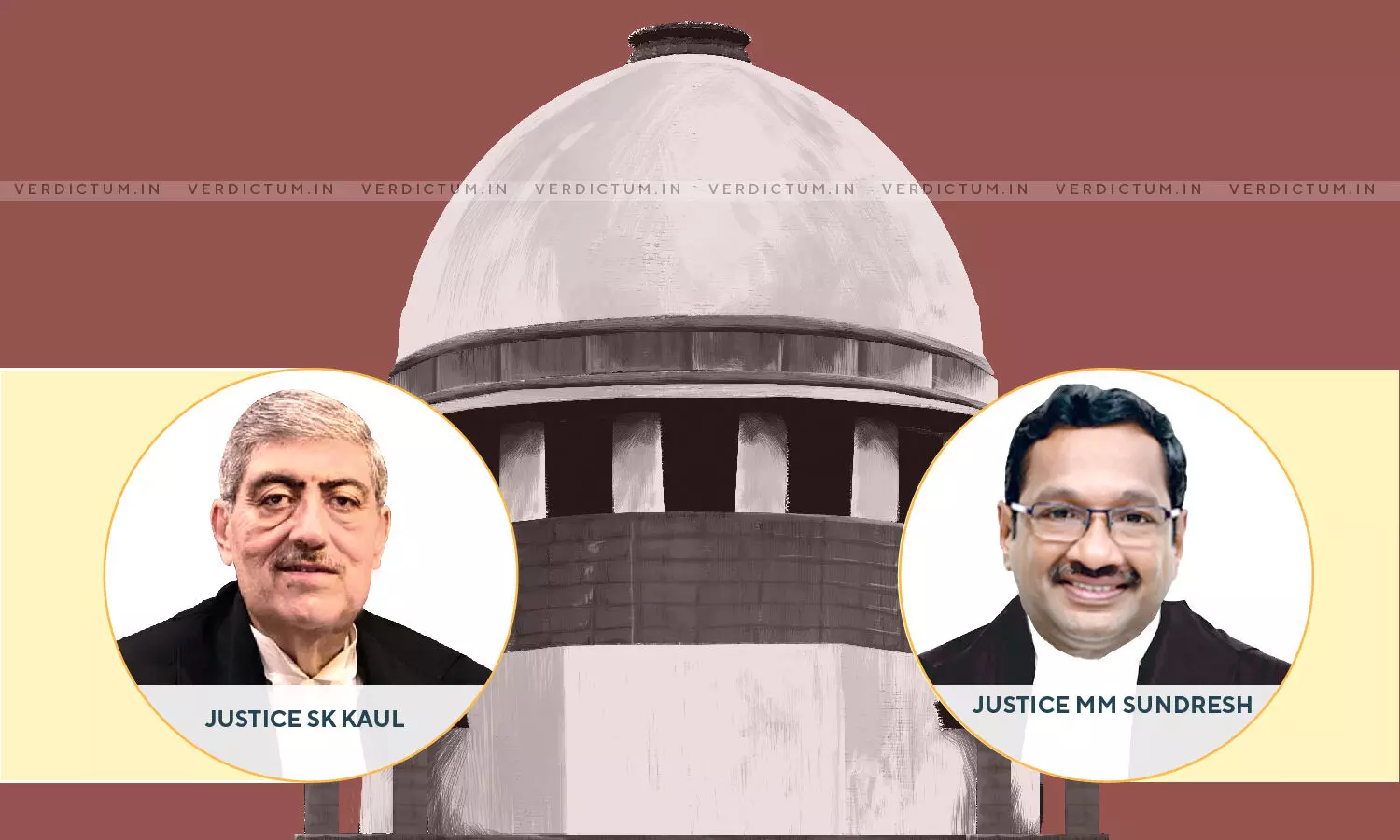
Limited Estate Given To Wife By Way Of Will Can Become Her Absolute Right U/s. 14(1) Of Hindu Succession Act If Given For Maintenance – SC
 |
|A two-judge Bench of Justice SK Kaul and Justice MM Sundresh has held that a limited estate given to a wife by way of a will by a Hindu male can become her absolute property if it was given for her maintenance.
In this context, the Court observed –
"The objective cannot be that a Hindu male who owned self-acquired property is unable to execute a Will giving a limited estate to a wife if all other aspects including maintenance are taken care of."
In this case, the will of the testator bequeathed his estate to his son- Appellant, and his second wife. However, the nature of bequeathing was different for the two. The Appellant was given absolute rights to the extent of his share of land and property whereas the second wife was given limited ownership during her lifetime with respect to her share of the land with a specific provision that she could not alienate, transfer or create third party rights over the same. Thereafter the property was to vest absolutely in the appellant after her lifetime.
After various rounds of litigation, the High Court in a second appeal held that a Hindu female had the right to maintenance of property if a charge was created for her maintenance, the right would become legally enforceable under Section 14 of the Hindu Succession Act. The Court also held that the second wife who had a limited right over the property would translate into an absolute right as it was only a confirmation of the pre-existing right over the property.
Aggrieved, the Appellant-son preferred an appeal before the Supreme Court.
The Apex Court referred to the precedent V. Tulasamma & Ors. case and held that Section 14(2) of the Succession Act would apply and this does inter alia applies to a Will which may create an independent and new title in favor of females for the first time and is not a recognition of pre-existing right. In such cases of a restricted estate in favour of a female is legally permissible and Section 14(1) of the said Act will not operate in that sphere.
The Bench added that the objective of Section 14(1) is to create an absolute interest in case a limited interest of the wife where such limited estate owes its origin to the law as it stood then.
"The objective cannot be that a Hindu male who owned self-acquired property is unable to execute a Will giving a limited estate to a wife if all other aspects including maintenance are taken care of. If we were to hold so it would imply that if the wife is disinherited under the Will it would be sustainable but if a limited estate is given it would mature into an absolute interest irrespective of the intent of the testator. That cannot be the objective, in our view," the Court observed.
The Court also held that the testator had taken care of all needs of maintenance of his wife by ensuring that the revenue generated from the estate would go to her alone. He, however, wished to give only a limited estate to her second wife with the son inheriting a complete estate after her lifetime. In this context, the Bench held provisions of Section14(2) of the Hindu Succession Act would come into play.
"The natural sequittur is that the respondents cannot inherit a better title than what the vendor had and, thus, the view taken by the trial court and the first appellate court is the correct view and the sale deeds in favour of the respondents cannot be sustained," the Bench noted.
Accordingly, the Court allowed the appeals and the impugned judgment of the High Court was set aside and the decree of the Trial Court as affirmed by the Appellate Court was reaffirmed.